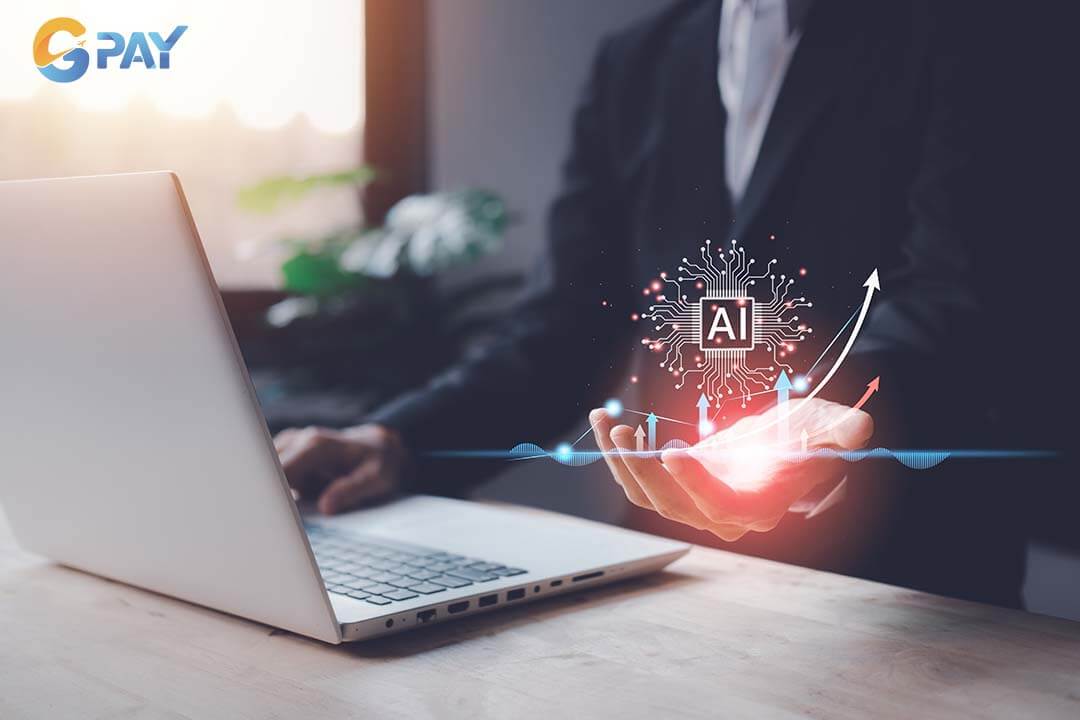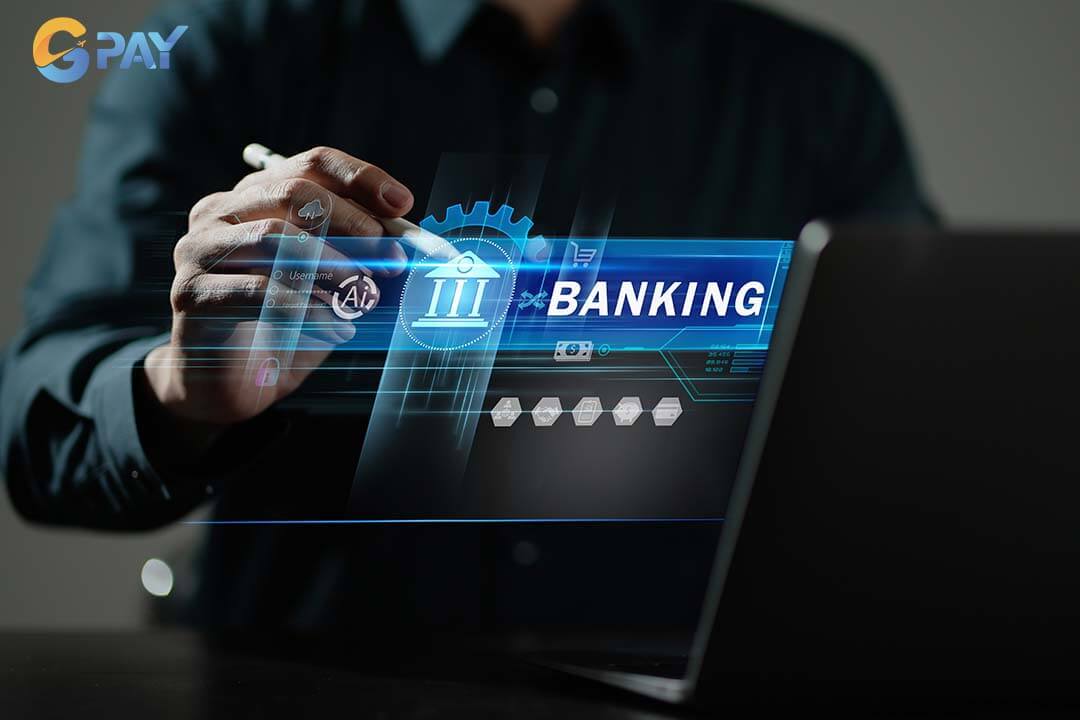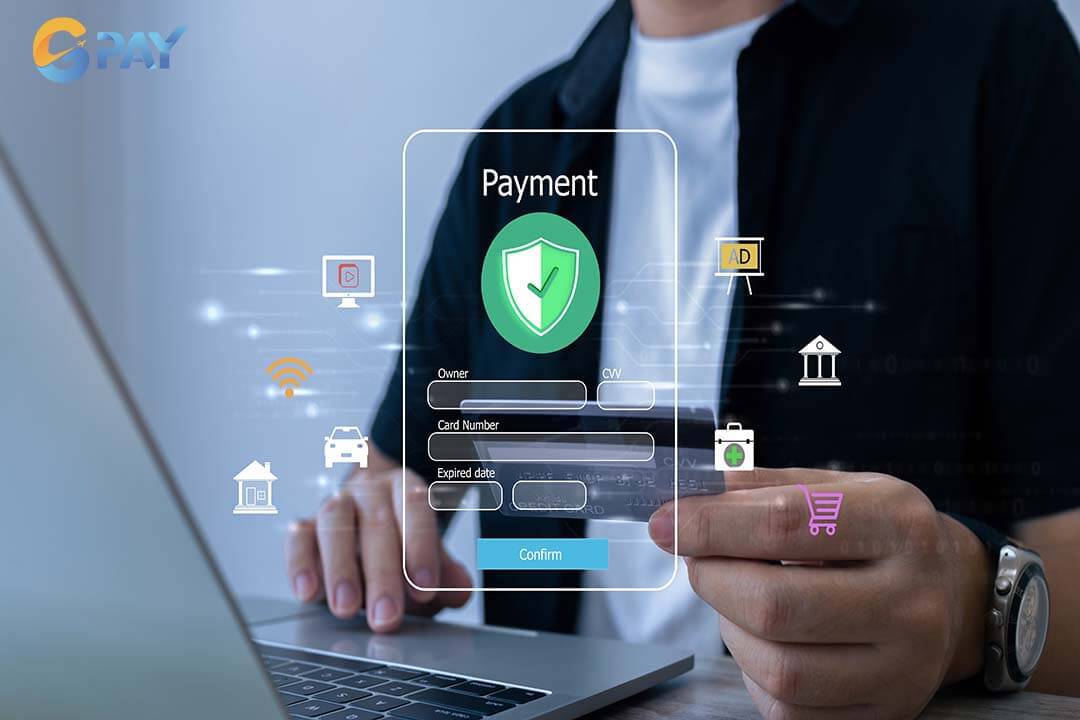AI in payment processing has emerged as a transformative tool in the digital era, significantly improving efficiency. Through automation, data analysis, and robust security features, AI has revolutionized the way businesses and financial institutions manage transactions. Its role extends beyond speeding up processing times to enhancing security and offering a more seamless user experience.
Define of AI in payment processing
AI is gradually becoming an essential tool in the payment field due to its ability to automate, secure, and analyze data effectively.
The role of AI in payment transactions
AI is the application of artificial intelligence in the payment processing process to optimize transaction speed, security, and accuracy. Through complex algorithms and machine learning capabilities, AI can analyze large amounts of data and make quick decisions. The integration of AI helps payment systems automatically detect fraud and efficiently process transactions.
Popular AI technologies (Machine Learning, NLP, Computer Vision)
In payment processing, several AI technologies are widely used. Machine Learning helps predict and process transactions based on historical data, thus optimizing payment decisions. NLP supports communication through chatbots, helping customers quickly resolve questions and complete transactions without human intervention. Computer Vision is a technology used for authentication via facial recognition, enhancing security and helping to prevent fraudulent behavior.
General benefits of AI in payments
AI brings many benefits to the payment process, including improving the accuracy of transaction handling, reducing errors, and increasing reliability. Enhancing security is an important factor, as AI has the ability to detect and prevent fraudulent transactions. Finally, improving user experience is one of the prominent advantages, as AI helps users make payments faster, easier, and more securely.

AI enhances payment speed, security, and accuracy, enabling fraud detection and seamless user experiences
Specific roles of AI in payment processing
AI helps improve specific aspects of the payment process, from fraud detection to process automation and information security.
1. Fraud detection
AI has the ability to analyze thousands of transactions per second to detect abnormal behavior. These systems learn from historical data to make predictions and effectively prevent fraud. Large companies like Visa and MasterCard have implemented AI in their payment systems.
2. Automating payment processing
AI helps automate many steps in the payment process, from verifying information to completing transactions. AI chatbots assist users in answering questions and processing payments without human intervention. This automation speeds up transactions and reduces human error, ensuring a more efficient and reliable payment system.
3. Optimizing user experience
AI helps personalize the payment experience, from suggesting suitable payment methods to sending offers based on user behavior. This helps increase conversion rates and retain customers. By analyzing individual preferences, AI tailors the payment process to be faster and more seamless. It can also offer rewards or discounts, enhancing customer loyalty and satisfaction.

AI personalizes payments by analyzing user behavior, suggesting methods, offering discounts, and enhancing customer loyalty
4 . Data analysis and trend prediction
AI can process large volumes of data (Big Data) and analyze it to predict future payment trends. Businesses can use this information to adjust their business strategies. With AI's ability to detect patterns, companies can forecast shifts in consumer behavior and adapt their offerings in real-time. This predictive power allows businesses to stay competitive by proactively meeting market demands.
5. Enhancing security and transaction safety
AI helps enhance security through biometric authentication, such as fingerprint or facial recognition. Payment information is also encrypted to ensure safety. In addition, AI continuously monitors transactions for unusual activities, providing real-time alerts for potential fraud. This added layer of protection helps build trust with customers, ensuring safer transactions.
6. Reducing payment risks
AI can assess the risk of each transaction in real-time, helping businesses reduce losses from faulty or fraudulent transactions. By using machine learning algorithms, AI can identify abnormal transaction patterns and flag them before they lead to significant financial losses. This enables businesses to take immediate action, preventing fraud and minimizing exposure to risk.

AI analyzes transactions in real-time, detecting risks and preventing fraud to minimize financial losses
AI trends in payment processing
AI continues to open up many opportunities and new trends in the future of the payment industry.
1. AI and blockchain in payments
The combination of AI and Blockchain creates a transparent and secure payment system. AI can optimize Blockchain networks by improving transaction efficiency and fraud detection, while Blockchain ensures that all transactions are securely recorded in an immutable ledger. Together, these technologies offer a tamper-proof, transparent, and efficient solution for cross-border payments and smart contracts.
2. The future of AI in digital banking
Digital banks will increasingly depend on AI to improve services. AI can help digital banks provide personalized financial advice, detect fraud, and optimize loan approval processes. Additionally, AI's ability to analyze vast amounts of data will enable these banks to predict customer needs and offer customized products, increasing both customer satisfaction and operational efficiency.

AI enables digital banks to offer personalized services, detect fraud, and optimize operations, enhancing customer satisfaction and efficiency
3. Emerging trends (AI chatbots, contactless payments)
Digital banks will increasingly depend on AI to improve services. AI can help digital banks provide personalized financial advice, detect fraud, and optimize loan approval processes. Additionally, AI's ability to analyze vast amounts of data will enable these banks to predict customer needs and offer customized products, increasing both customer satisfaction and operational efficiency.
Use GPay - The global payment gateway
GPay offers several key advantages that make it an ideal payment solution. It supports over 173 countries, enabling seamless transactions across various regions. With a wide range of payment methods, GPay allows users to pay via credit cards and e-wallets, offering flexibility in payment options.
GPay ensures data security through advanced encryption technology and fraud detection, safeguarding all transactions. Additionally, it provides risk management tools, real-time reporting, and a user-friendly dashboard, making it easy for users to track and manage their payments effectively.

GPay delivers fast, secure payments with advanced security and seamless integration, empowering businesses to grow
In conclusion, AI in payment processing enhances efficiency, security, and user experience. Technologies like machine learning and computer vision automate transactions, detect fraud, and personalize payments. With AI-driven solutions like GPay, businesses ensure secure, efficient payments, stay competitive and meet customer needs. Contact GPay today to improve your business's security and efficiency.

